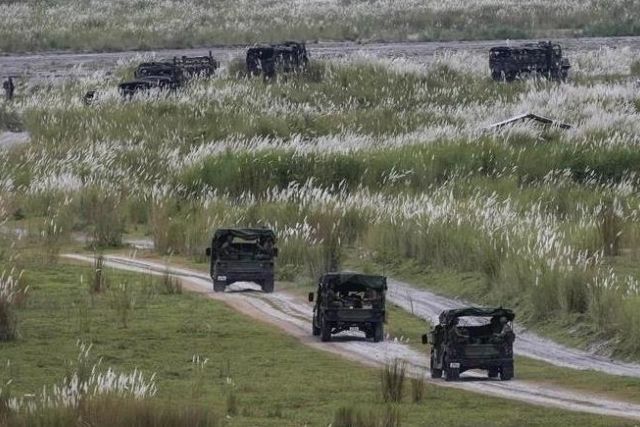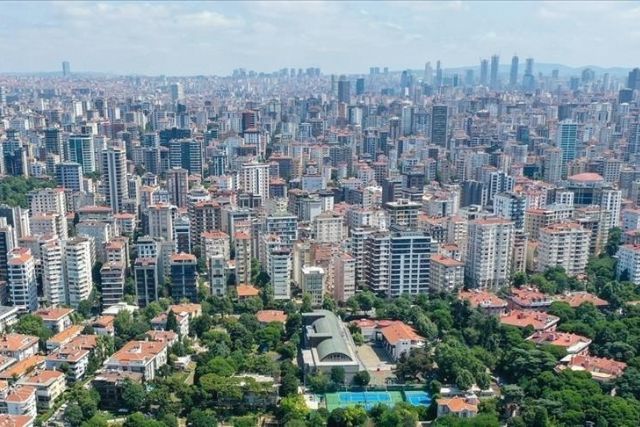Rights groups oppose expansion of US military bases in Philippines
Local, international organizations claim 2 bases in Cagayan province facing Taiwan to exacerbate already dire situation of human rights, land grabbing

ANKARA
Some local and international organizations on Friday objected to US bases in the Cagayan province of the Philippines, fearing that the recent agreement by Manila to provide four more bases to Washington in the valley region will exacerbate the already dire situation of human rights and land grabbing.
The Asia Pacific Research Network (APRN), a regional network of research NGOs, issued a statement on the 9th anniversary of the Enhanced Defense Cooperation Agreement (EDCA), which was signed in 2014 between the US and the Philippines, claiming that the latest deal between the two countries providing four more bases will increase rights abuses and land grabbing in areas hosting US troops.
Earlier this month, Manila identified four more military bases for joint use with Washington under the EDCA.
Two of the four additional military facilities are located in the Taiwan-facing province of Cagayan – the Cagayan North International Airport in Lal-lo and the Naval Base Camilo Osias in Santa Ana town.
While the other sites are Camp Melchor F. Dela Cruz in Gamu, Isabela, and Balabac Island in the extreme southwestern Philippines, according to the organization.
However, the country's Secretary of Foreign Affairs, Enrique Manalo, said last week that they "won't allow" the US to stockpile weapons at the joint military bases for use in operations in Taiwan.
“The scale of impact on the rights of communities and livelihoods has grown, and this is parallel to the installation of EDCA sites and the ongoing joint US-PH military exercises in the country,” the APRN said in the statement.
The organization accused the government of targeting activists and human rights defenders who speak out against human rights violations and land grabbing.
It also accused the Philippine military of attacking peasant groups and villages in Cagayan, claiming that it is part of the military's deliberate strategy to quell resistance against land grabbers across the province, including at the two sites designated for US military bases.
“While it's happening everywhere else in the country, human rights abuses, including bombings, in Cagayan have increased dramatically in the last two years, fomenting a climate of fear among government critics,” the statement quoted Tanggol Magsasaka of the local Defend Farmers organization as saying.
According to Magsasaka, terrorism affected 1,254 people in the last year, with 900 of them being displaced.
The statement also quoted Gail Orduna, coordinator for the People's Coalition on Food Sovereignty (PCFS), an Asian component of the global agriculture trade network on People's Food Sovereignty, as saying, “It is to no one's surprise that the communities bombed by the AFP (the Armed Forces of the Philippines) in the last two years were the same villages actively thwarting land grabbing projects in Cagayan. They even arrested farmer leaders, so land grabs remain unchallenged.”
“Let us not act brand new. The US military presence in the Philippines, especially during the time of the brutal Marcos regime, has yielded nothing but a long list of atrocities against the Filipino people and destruction of our natural resources,” said Zenaida Soriano, chairperson of the National Federation of Peasant Women (Amihan), in the same statement.
*Writing by Islamuddin Sajid





